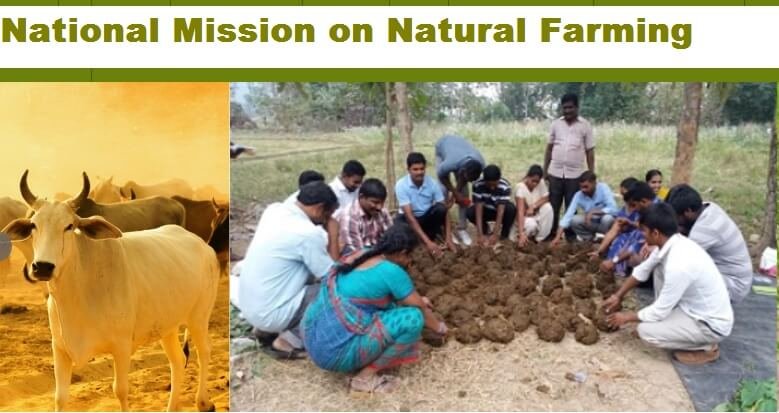National Mission on Natural Farming to promote natural farming
The Centre has launched the National Mission on Natural Farming (NMNF) by making the Bharatiya Prakritik Krishi Paddhati (BPKP) scheme bigger. This is to promote natural farming across the country.
‘The government created the National Mission on Natural Farming (NMNF) to promote natural farming across the country and get more farmers involved. This was done by making the Bharatiya Prakritik Krishi Paddhati (BPKP) a bigger project. Agriculture Minister Narendra Singh Tomar told the Lok Sabha on March 14 that the NMNF will cover 7.5 lakh hectares by developing 15,000 clusters over the next four years. This will cost the Centre’s share of the budget, which is ₹1,584 crore.
He also said that the government plans to help one million farmers in the Ganga belt and other rainy parts of the country through the NMNF.
Also Read | Agri Minister Tomar launched the website on Natural Farming
Under the NMNF, farmers will get ₹15,000 per hectare per year for three years to help them build infrastructure on their farms to make inputs. In the operational guidelines, it says that farmers will only get incentives if they say they will do natural farming and then do it. If a farmer doesn’t pay or doesn’t keep doing natural farming, the next payments won’t be made.
The BPKP was a sub-scheme of the Paramparagat Krishi Vikas Yojana (PKVY). It gave farmers ₹12,200 per hectare for three years to help them form groups, build their skills, and get help. Also, PKVY funds were used to give help of ₹8,800 per hectare for three years to market, add value to, and get the word out about natural farming products.
The NMNF rules say that farmers who want to use natural farming methods on their land must sign up as cluster members. Each cluster must have at least 50 farmers and 50 hectares of land. Also, each cluster can be in one village or in two or three villages near each other that are all part of the same gramme panchayat.
Master trainers
Tomar also said that a website called naturalfarming.dac.gov.in has been set up to promote natural farming. This website has information on the implementation framework, resources, implementation progress, farmer registration, a blog, and other things. He said that the National Institute of Agricultural Extension Management (MANAGE) and the National Centre of Organic and Natural Farming (NCONF) are being used by the agriculture ministry to train a large number of master trainers, ‘champion’ farmers, and working farmers in the techniques of natural farming. He also said that there have already been 997 training programmes for 56,952 gramme pradhans.
Also Read | Eliminate Urea; natural farming achievable with one cow on 21 acres: Amit Shah
BRC and NMNF cluster
The minister also said that the Centre plans to set up 15,000 Bhartiya Prakritik Kheti Bio-inputs Resources Centres (BRCs) to make it easy to get bio-resources like Jeevamrit, Ghana Jeevamrit, and neemastra, which are made from cow dung and urine, neem, and bioculture. At a recent meeting with Niti Aayog, people from cow shelters asked for their units to be called BRCs because they are the most important part of the value chain for making and distributing bio fertilisers.
Along with the 15,000 model clusters of natural farming, these bio-input resource centres would also be set up. These BRCs would set up a national network for distributing micro-fertilizers and pesticides. Each BRC would be in charge of one NMNF cluster.


















Add Comment